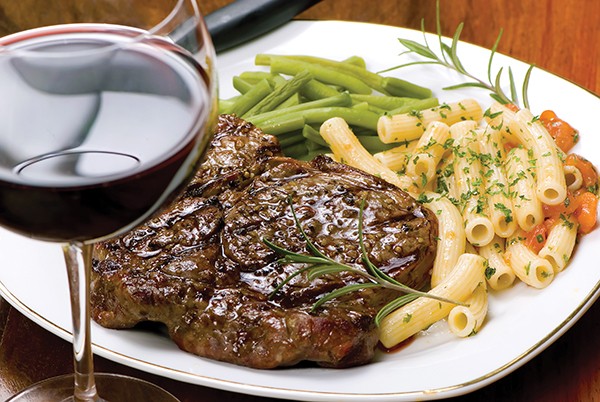Humans are survivors. Science repeatedly tells us that this has more to do with instinct than smarts. When pre-science humans really put their brains to something, we were often wide the mark: Disemboweling virgins so the sun won’t eat the Earth leaps immediately to mind.
Instinct is another matter. If not perfect, it tends to serve us at least pretty well. Alcohol has long been considered medicinal, even if we didn’t know why. And practically, in a world before plastic wrap and disinfectants, it was.
What instinct told us, science has subsequently proven: that a little booze is good for us. Studies show that moderate consumption of alcohol raises the level of high-density lipoprotein (HDL) in the body. HDL is known as “the good cholesterol” by those who know these things. To the rest of us, HDL promotes solid cardiovascular health and aids in the fight against dementia. Not only does it help you avoid a heart attack, you are lucid enough to contemplate your good fortune.
A few years ago, Dr. Joseph Kanner, of the Hebrew University of Jerusalem, went a step further to ask why we instinctively pair red wine with red meat in a wonderfully titled paper: “The Stomach as ‘Bioreactor’: When Red Meat Meets Red Wine.”
In his report, published in the Journal of Agriculture and Food Chemistry, Dr. Kanner says that not only is red wine good for you, it can prevent other things from being bad for you. Red wine, in addition to its HDL-boosting properties, is rich in polyphenols: powerful antioxidants thought to protect the body from cancer and heart disease. Here’s the thing, most of the benefits of red wine come not from drinking it alone, but pairing it with food.
 Thomas Perkins | Dreamstime.com
Thomas Perkins | Dreamstime.com
Say that you’re having a nice steak, that seductive boogieman, and you pair it with a dry red wine. When you start to digest the meat, it releases an oxidizing toxin ominously called malondialdehyde (MDL), which is tied to arteriosclerosis, cancer, diabetes, and giving the Beef Council nightmares.
Don’t worry, enjoy your meal, you’ll be fine. Red wine, and all those polyphenols, arriving in the stomach at the same time the MDL is released seems to neutralize the toxins before they can get into the bloodstream or guilty conscience. According to the study, the MDL level in the stomach was 50 percent highter than the control baseline after red meat and red wine. In full disclosure, the tests were performed on rats — not known to be picky drinkers — so your mileage may vary.
Commenting on the report, although not involved, Dr. James O’Keefe, Chief of Preventive Cardiology at St. Luke’s Mid-American Heart Institute said, “This is what I’ve been telling people for years based on observational data.” He then went on to say, “If you have a glass of red wine with your evening meal tonight, your peak blood sugar, if you measured it an hour later, would be about 30 percent lower than if you hadn’t had the wine.”
It’s this post-meal blood sugar spike that causes the inflammation that contributes to diabetes, dementia, heart disease, arthritis, and a near-fatal jump in health statistics. Keep in mind, all the health returns on booze start to diminish rapidly. Overdoing it is likely going to have you staring at the ceiling at 2 a.m. in a sugar rush. But you knew that.
Again, science has proven our instincts sound: that red wine and red meat pair well. Like most things that instinctively go together, there is a good reason for it: It’s the body making its needs known to those sensible enough to listen to it.
The coexistence between science and religion has been, at times, problematic. Even in the ancient world, virgins were something of a perishable commodity. Science and instinct, generally, get along famously.